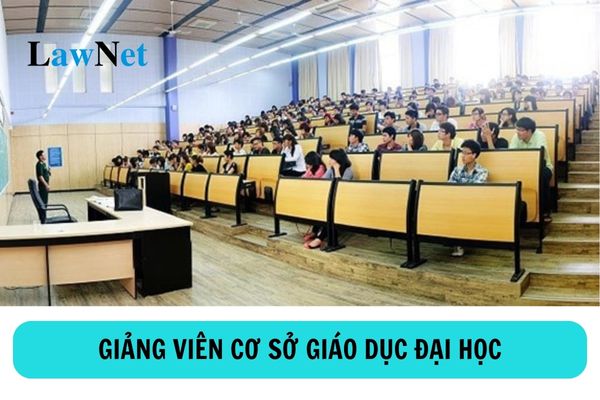Vietnam: What are the State policies applicable to lecturers of higher education institutions?
What are the State policies applicable to lecturers of higher education institutions in Vietnam?
According to Article 56 of the Law on Higher Education 2012, the State policies applicable to lecturers are as follows:
- The lecturers in the higher education institution shall be sent to attend profession improvement courses, enjoy salaries and occupational benefits, seniority pay and other benefits as prescribed by the Government.
- The teachers in the higher education institutions located in poor areas shall enjoy accommodation incentives, preferential benefits and other incentive policies as prescribed by the Government.
- The State shall formulate the policy on mobilizing and sending lecturers to higher education institutions located in poor areas; encouraging lecturers in favorable areas to work at higher education institutions located in poor areas and facilitate their tasks.
- Healthy lecturers holding doctorate degrees, professor or associate professor titles working at higher education institutions may extend the working time when reaching the retirement age in order to continue teaching and doing scientific research if such extension is demanded by both the higher education institution and the lecturers themselves.

What are the State policies applicable to lecturers of higher education institutions in Vietnam? (Image from the Internet)
What are the duties and powers of lecturers at higher education institutions in Vietnam?
Under Article 55 of the Law on Higher Education 2012, amended by points a, b, c, d, Clause 30, Article 1 of the Law on Amendments to Law on Higher Education 2018, lecturers at higher education institutions have the following duties and powers:
- Teaching, developing the training program, completing the training program and ensuring the quality thereof.
- Studying, developing technology transfers and science application, assuring the training quality.
- Improving political reasoning skills, professional knowledge, professional skills and teaching methods; participate in practical activities to improve training quality and participate in scientific research.
- Preserving the credentials, reputations and honor of lecturers
- Respecting the students’ dignity, treating students equitably, protecting the lawful rights and interests of students.
- Participating in managing and supervising the higher education institution, participating in the Party’s activities, collective activities and other works.
- Remaining independent in teaching and scientific research in harmony with interests of the State and society; having the right to sign visiting lecturer contracts and scientific research contracts with higher education institutions, research institutions and other organizations in accordance with regulations of the higher education institution he/she is working for.
- Being given lecturers' titles, awarded the “People’s educator”, “Elite educator” titles and get commendation as prescribed by law.
- Other duties and powers specified in the higher education institution’s internal rules and regulations and relevant laws.
What are the titles of lecturers in higher education institutions in Vietnam?
According to Clause 1, Article 54 of the Law on Higher Education 2012, amended by Clause 29, Article 1 of the Law on Amendments to Law on Higher Education 2018, the provisions on lecturers in higher education institutions are as follows:
Lecturers
1. Lecturers of higher education institutions shall have clear backgrounds; good qualities and professional ethics; be physically capable of performance of their duties; have qualifications conformable with this Law and the higher education institution’s internal rules and regulations.
2. Lecturers include assistant lecturers, lecturers, principal lecturers, associate professors and professors. Higher education institutions shall award lecturer titles in accordance with law, its internal rules and regulations; provide description of their positions and demand of the situation.
3. Lecturers of undergraduate programs shall have at least a master’s degree (except assistant lecturers); Lecturers of master’s programs and doctoral program shall have at least a doctoral degree. Holders of doctoral degrees shall be preferred when a higher education institution recruits lecturer; incentives shall be provided for leading professors.
4. The Minister of Education and Training shall specify standards and designation of lecturers within the scope of his/her competence; the minimum ratio of full-time lecturers of a higher education institution; standards of practice lecturers and lecturers of some special disciplines.
Thus, lecturers in higher education institutions include the following titles:
- Teaching assistant;
- Lecturer;
- Senior lecturer;
- Associate professor;
- Professor.

